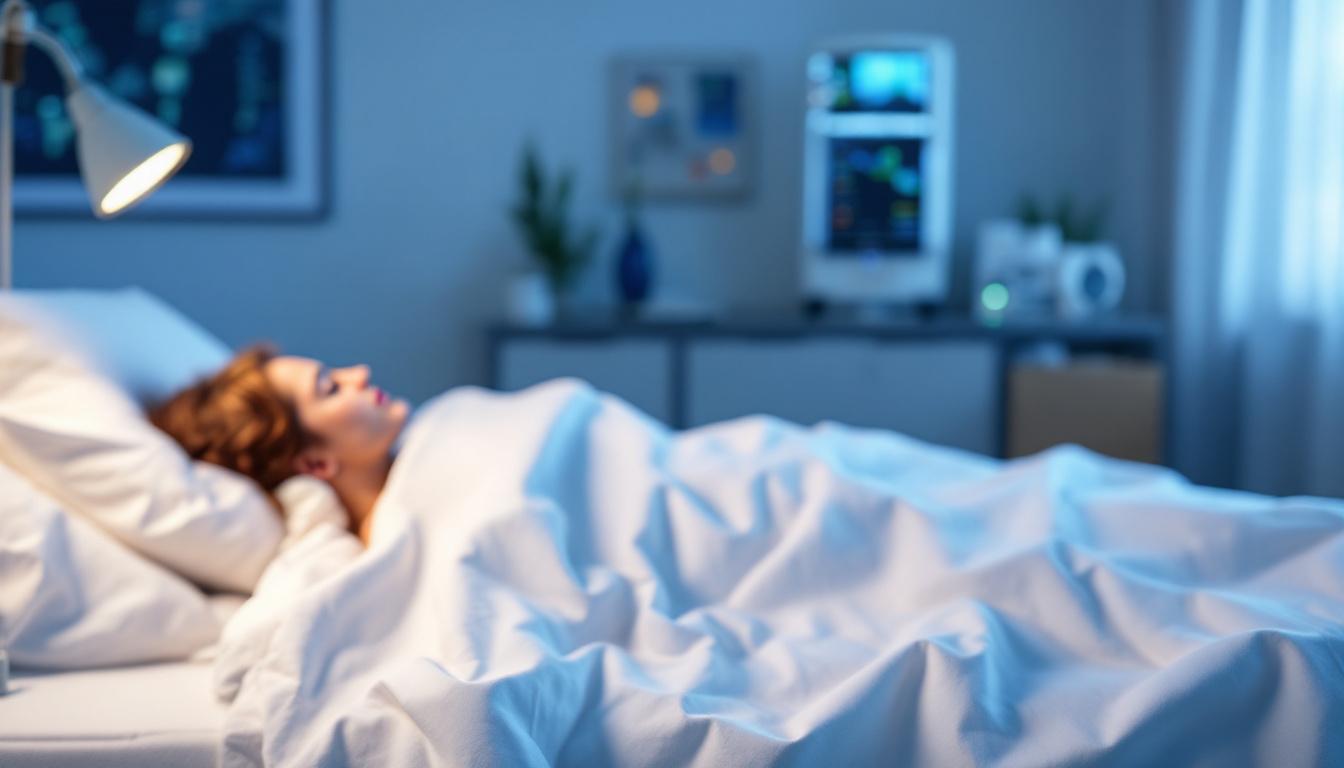Understanding the costs associated with a sleep study in Canberra is crucial for anyone considering this essential diagnostic procedure. Sleep studies, or polysomnography, are conducted to diagnose various sleep disorders, including sleep apnoea, insomnia, and restless leg syndrome. This article aims to provide a comprehensive breakdown of the fees and inclusions associated with sleep studies in Canberra, ensuring that patients are well-informed before proceeding.
What is a Sleep Study?
A sleep study is a non-invasive test that monitors various physiological parameters while a patient sleeps. These parameters typically include brain activity, eye movement, heart rate, breathing patterns, and blood oxygen levels. The data collected during the study helps healthcare professionals diagnose sleep disorders accurately.
Understanding the Canberra sleep study cost essential for anyone considering this important diagnostic procedure. By being informed about the types of studies available, the factors influencing costs, and what is included in the fees, patients can make educated decisions regarding their sleep health.

Sleep studies can be conducted in a sleep clinic or at home, depending on the specific needs of the patient and the type of study required. In Canberra, both options are available, and the choice often influences the overall cost.
Types of Sleep Studies
There are primarily two types of sleep studies: in-lab polysomnography and home sleep apnoea testing (HSAT). Each type has its unique features, benefits, and costs associated with it.
In-Lab Polysomnography
This comprehensive sleep study is performed in a controlled environment, typically a sleep clinic. Patients are monitored overnight, allowing for detailed observation of their sleep patterns. The cost of in-lab polysomnography can vary significantly based on the facility, the duration of the study, and the specific tests conducted.
On average, the cost for an in-lab sleep study in Canberra ranges from AUD 1,000 to AUD 3,000. This fee often includes the use of the facility, equipment, and the expertise of sleep specialists who analyse the results.
Learn more on: Home Sleep Study Canberra Convenient Testing at Home
Home Sleep Apnoea Testing (HSAT)
Home sleep apnoea testing is a more convenient and cost-effective option for many patients. This type of study allows individuals to sleep in their own environment while using portable monitoring equipment. HSAT is typically recommended for patients who exhibit symptoms of obstructive sleep apnoea without other complicating factors.
The cost for home sleep apnoea testing in Canberra generally ranges from AUD 300 to AUD 800. This fee usually covers the rental of the equipment and the analysis of the data collected during the study.
Factors Influencing the Cost of Sleep Studies
Several factors can influence the overall cost of a sleep study in Canberra. Understanding these factors can help patients make informed decisions regarding their sleep health.
Facility Fees
The choice of facility plays a significant role in determining the cost of a sleep study. Different clinics may charge varying rates based on their location, reputation, and the quality of services offered. High-end facilities with advanced technology and experienced staff may charge more than smaller clinics. Learn more about quality on https://fui.edu.pk/introduction-department-of-quality-assurance
It is advisable for patients to research multiple facilities and compare their offerings, as some may provide additional services or amenities that justify a higher price.
Insurance Coverage
Insurance coverage can significantly impact out-of-pocket expenses for sleep studies. Many health insurance plans cover a portion of the costs associated with sleep studies, but the extent of coverage can vary widely. Patients should check with their insurance providers to understand their benefits and any potential out-of-pocket expenses.
In some cases, a referral from a general practitioner may be required for insurance to cover the costs, so it is essential to follow the necessary procedures to maximise coverage.
Additional Testing and Follow-Up
In some instances, additional testing may be required following the initial sleep study. For example, if a patient is diagnosed with sleep apnoea, they may need further assessments or treatments, such as a CPAP (Continuous Positive Airway Pressure) machine. These additional services can add to the overall cost of managing sleep disorders.
Patients should discuss potential follow-up costs with their healthcare providers to gain a complete understanding of their financial obligations.
What is Included in the Cost of a Sleep Study?
The cost of a sleep study typically includes several components, which can vary depending on the type of study and the facility. Understanding what is included in the fee can help patients gauge the overall value of the service.

Equipment and Monitoring
Both in-lab and home sleep studies involve the use of specialised equipment to monitor various physiological parameters. The cost of the sleep study generally includes the rental or use of this equipment, which can be quite sophisticated. In-lab studies often utilise more advanced technology, while home studies may use simpler devices.
Patients should ensure that the equipment used is up-to-date and meets industry standards, as this can affect the accuracy of the results.
Data Analysis and Reporting
After the sleep study is completed, the data collected is analysed by a qualified sleep specialist. This analysis is a critical component of the sleep study, as it provides the basis for diagnosis and treatment recommendations. The cost of the study usually includes this analysis and the subsequent report provided to the patient and their referring doctor.
Patients should expect a detailed report outlining the findings, which can help them understand their sleep patterns and any identified disorders.
Consultation with Sleep Specialists
Following the sleep study, patients often have a consultation with a sleep specialist to discuss the results and potential treatment options. This consultation is typically included in the overall cost of the sleep study, but it is essential to confirm this with the facility beforehand. Click here to find more about treatment.
During this consultation, patients can ask questions, clarify any concerns, and receive personalised recommendations based on their specific sleep issues.
How to Prepare for a Sleep Study
Preparation for a sleep study is crucial to ensure accurate results. Patients should follow specific guidelines provided by their healthcare providers to optimise the study’s effectiveness.
Pre-Study Instructions
Patients may be advised to avoid caffeine and alcohol in the days leading up to the study, as these substances can interfere with sleep patterns. Additionally, it is often recommended to maintain a regular sleep schedule to ensure the body is prepared for the study.
Patients should also inform their healthcare providers about any medications they are taking, as some may need to be adjusted or temporarily discontinued prior to the study.
What to Bring
For in-lab studies, patients should bring comfortable sleepwear and any personal items that may help them relax during the study, such as a favourite pillow or blanket. For home studies, patients will need to ensure they have a suitable sleeping environment, free from disturbances.
It is also advisable to bring a list of any symptoms experienced, as well as any relevant medical history, to facilitate discussions with the sleep specialist.
Conclusion
Whether opting for an in-lab polysomnography or a home sleep apnoea test, patients should ensure they are aware of their insurance coverage and any potential follow-up costs. With the right preparation and understanding, individuals can take significant steps towards improving their sleep quality and overall health.
